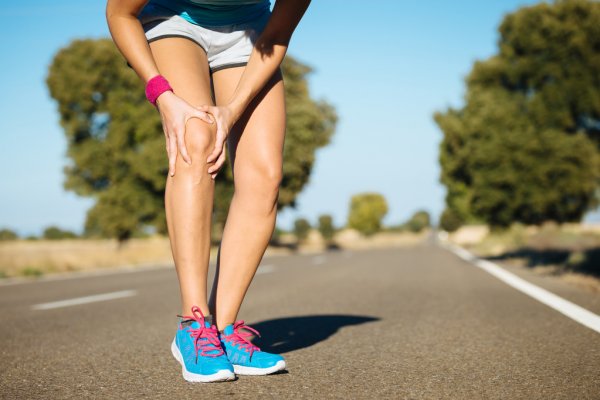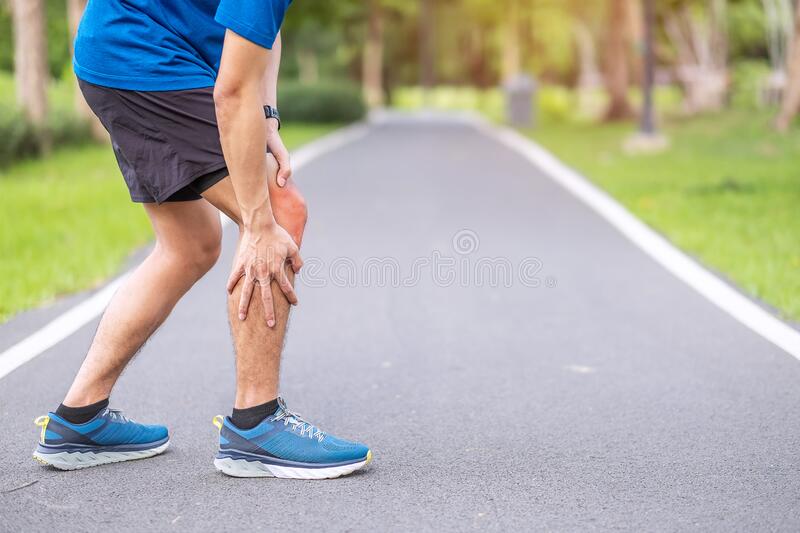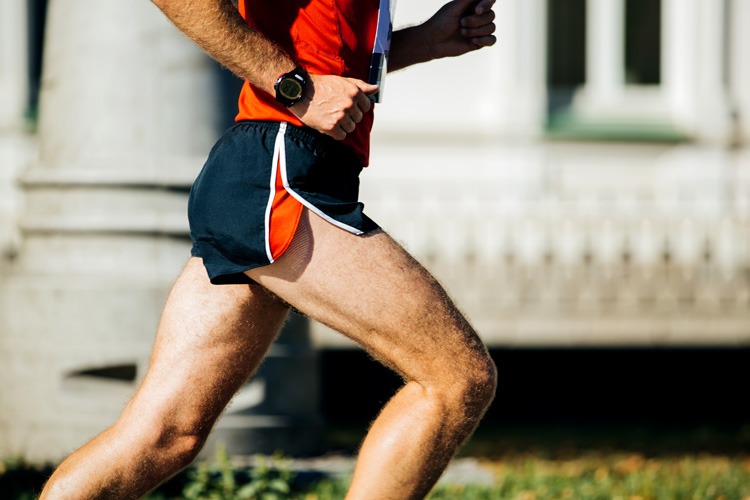Runner's Knee
Conditions / Runner's Knee
The two most common types of running related injuries occur at the knee. In fact, nearly half of all running injuries effect the knee with patellofemoral pain and iliotibial band syndrome.
Whether you are just getting back to running after a long break or are in the heart of your training schedule for an upcoming race, Runners Knee always seems to hit at the wrong time. We’ve seen too many people get their training derailed by knee pain.
Our sports chiropractic approach is effective at treating knee pain in all ages and abilities. From Division I athletes to Couch-to-5k amateurs. Regardless of level, all runners have one thing in common… they want to keep running
5 Most Common Running Injuries
- Patellofemoral Pain Syndrome
- Iliotibial Band Syndrome
- Knee Meniscal Injuries
- Plantar Fasciitis
- Tibial Stress Syndrome / Shin Splints

What is causing your Runner’s Knee?
Running injuries can happen for a variety of reasons and Dr. Peters takes pride in figuring out the why so he can work to keep you running. When it comes to Runner’s Knee, there are both intrinsic factors and extrinsic factors that may be contributing to pain.
Intrinsic factors are those internal to you as a runner while extrinsic factors are about the environment you run or train in. Check out the list below to see some of the intrinsic and extrinsic factors associated with running injuries.
The goal of caring for a runner is to focus on the factors that are modifiable to treat and prevent running injuries.
Intrinsic Factors – Running Injuries
- Injury History
- Running mechanics / Over-striding
- Mobility/flexibility of the lower extremity
- Leg length discrepancy
- Age and Body Mass Index
- Foot loading strategies / Arch Height
- Hip and leg strength
Extrinsic Factors – Running Injuries
- Training regime
- Running surface
- Lack of warm-up
- Shoe type
- Level of competition
- Intensity, volume, frequency of running
- Orthotics
Patellofemoral Pain
Patellofemoral pain is the most common reason for knee pain. The kneecap, also known as your patella, is the largest sesamoid bone in your body and helps improve the mechanical efficiency of your knee by more than 50%. When problems in this area occur, pain increases, and performance decreases.
You may have heard of patellar tracking issues. While conventional wisdom may have led you to believe that is the cause of your runner’s knee, I am here to tell you that’s probably not the case. Rather, A combination of excessive joint forces, training errors, muscular imbalances, decreased flexibility, and poor movement control may all contribute to patellofemoral pain.


Iliotibial (IT) Band Syndrome
IT band syndrome is the most common cause of pain on the outside of the knee. This area of the knee can become irritated when excessive demand is placed on the muscles of the outer leg and hips. These muscles include the glutes and tensor fascia latae which attaches to the IT band in the hips and pelvis.
Excessive frontal plane knee motion leads to increase stress on the outside of the knee. Improving mobility of the quads and cleaning up movement control at the knee is extremely helpful in those suffering from IT Band Syndrome.
How can sports chiropractic help Runner’s knee?
Running injuries are multi-factorial. That’s why our multi-modal approach to treatment is effective for runners struggling with pain and injury. Check out how our sports chiropractic approach can help your Runner’s Knee:
- Return to running program
- Mobility/flexibility of the hips, knees, ankle, and feet
- Myofascial release / Sports massage
- Dry Needling
- Sports rehabilitation exercises
- Joint manipulation
- Running form retraining
Resources for Runner's Knee
Our Omaha chiropractic office takes a comprehensive approach to treating Runner’s Knee. We have videos on our YouTube channel aimed at improving flexibility, strengthening the hip muscles, running form modifications, and much more.
